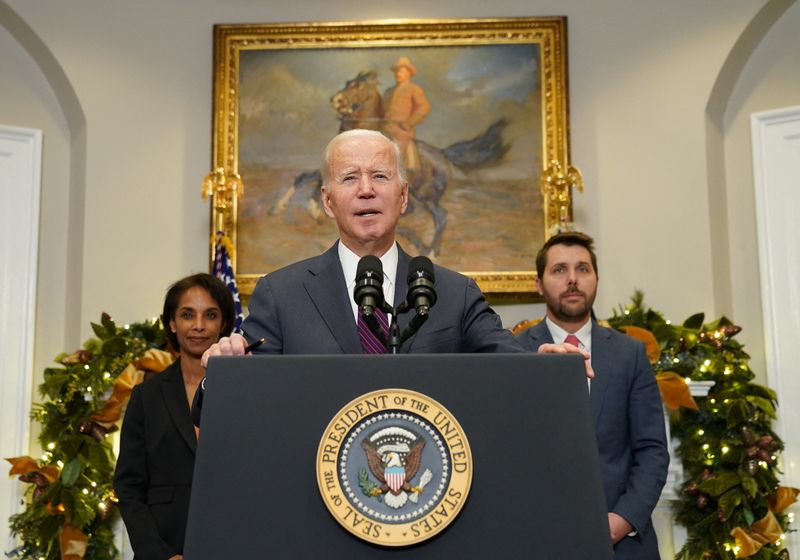Biden announced partnership with Africa
2022.12.14 01:20
[ad_1]

Biden announced partnership with Africa
Budrigannews.com – Expect to hear about support for democracy, economic development, and new financial commitments for a region that has taken a back seat to other U.S. priorities in recent years when President Joe Biden addresses African leaders in Washington on Wednesday.
However, there will be a second, probably unspoken message: China is not a good partner for Africa. The United States is.
The three-day summit, the first of its kind since 2014, includes delegations from 49 nations and the African Union, including 45 national leaders from Africa. Washington will also tout its support for climate change and food security.
It’s essential for a restored push to help attaches with a landmass where U.S. interests have been tested by China’s security aspirations and exchange, speculation and loaning drives. In contrast, for more than two decades, Beijing has held its own high-level meetings with Africa every three years.
Despite the obvious backdrop of Sino-American competition, U.S. officials have been reluctant to portray the gathering as a power struggle. Despite calls from some African leaders for more U.S. leadership, Washington has toned down its criticism of Beijing’s lending practices and infrastructure projects.
To that end, Biden is likely to say that he supports the African Union becoming a permanent member of the G20, a group of the world’s largest economies.
More Briefly about main thing in world-part 3
Jake Sullivan, the national security adviser for the United States, stated that Washington will “bring resources to the table” and commit $55 billion to Africa over the next three years. U.S. Trade Representative Katherine Tai told African counterparts on Tuesday that she wants to improve the continent’s U.S. trade preferences program.
Ned Price, a spokesman for the State Department, told reporters on Monday, “We are not looking for a relationship that is transactional, that’s extractive, that’s burdensome, or leaves various countries in a more fragile, poor state after a deal is done.” Price did not mention China but used language that mirrored Washington’s criticism of China’s behavior in Africa.
It is impossible to deny China’s economic influence in Africa.
In 2021, China-Africa trade, valued at $254 billion, was significantly greater than U.S.-Africa trade, which was valued at $64.3 billion, according to a Eurasia Group analysis. These numbers are up from $12 billion in 2002 and $21 billion in 2002, respectively. By making loans with fewer restrictions than Western lenders, China has also emerged as a significant creditor.
Western accusations that China has piled debt on African nations have resulted from this. Prior to the summit, Beijing’s ambassador to Washington, Qin Gang, rejected the idea, noting that Chinese-built hospitals, highways, airports, and stadiums are “everywhere” in Africa and citing a report showing that African nations owe three times as much to Western institutions.
Despite the fact that China continues to be the largest bilateral investor in the region, the country’s new loan commitments to Africa have decreased in recent years due to pressure from within and outside China to make its infrastructure investments more sustainable.
The United States has not been able to offer loans to Africa on the same scale as China. Instead, officials from the United States emphasize a strategy that encourages private investment.
This week, Don Graves, deputy secretary of commerce, said that American businesses brought cutting-edge technologies and standards “as opposed to bringing in tens of thousands of our own workers.” This was veiled criticism of Chinese businesses’ long-standing practices, which have enraged Africans.
Tuesday, Antony Blinken, Secretary of State, stated that the United States would announce investments to support African entrepreneurs and small businesses and exchange programs for students.
It’s not just about economic power; China’s efforts to establish a military presence, including on Equatorial Guinea’s Atlantic coast, have alarmed Washington.
Many African leaders, on the other hand, reject the notion that they must choose between China and the United States.
According to Ethiopia’s U.N. ambassador, Taye Atske Selassie Amde, “the fact that both countries have different levels of relations with African countries makes them equally important for Africa’s development.” However, it ought to be known that each African nation has the authority to decide how best to handle their relationship.








